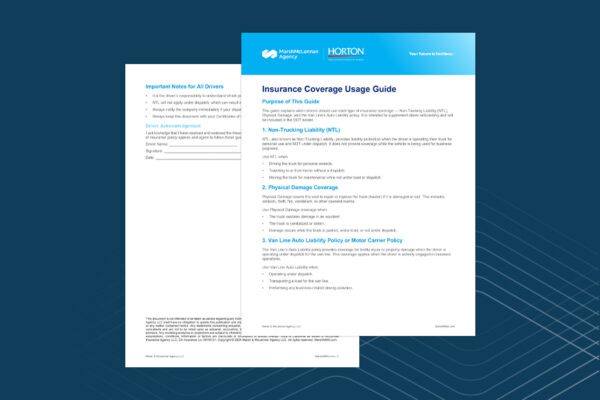The Office of Personnel Management (OPM); along with the departments of Health and Human Services (HHS), Labor (DOL), and Treasury; released “Part 1” of regulations implementing the No Surprises Act on July 1, 2021.
The interim final rule with comment period (IFC) addresses several provisions in the law, including the ban on balance billing for certain out-of-network services (referred to as “surprise medical bills”); the notice and consent process that some providers may use to bill patients for out-of-network services; how patient cost-sharing must be calculated; and a complaint process for any potential violations of the provisions in the law.
Summary
This first rule implements several important requirements for group health plans, group and individual health insurance issuers, carriers under the Federal Employees Health Benefits (FEHB) Program, health care providers and facilities, and providers of air ambulance services. The regulations are generally applicable to group health plans and health insurance issuers for plan years beginning on or after January 1, 2022.
These limitations apply to out-of-network emergency services, air ambulance services furnished by out-of-network providers, and certain non-emergency services furnished by out-of-network providers at certain in-network facilities, including hospitals and ambulatory surgical centers. The IFC requires emergency services covered by the plan to be covered:
- Without any prior authorization (i.e., approval beforehand).
- Regardless of whether the provider is an in-network provider or an in-network emergency facility.
- Regardless of any other term or condition of the plan or coverage other than the exclusion or coordination of benefits, or a permitted affiliation or waiting period.
Plan participants can still be billed for protected services, but their cost sharing responsibilities (i.e., copayments, coinsurance, and deductibles) will apply as if the protected services were provided in-network. Health plans will be required to pay any balance to the out-of-network facilities directly.
The IFC also requires that health plans:
- Provide an explanation of benefits showing the participant cost-sharing for protected services was based on in-network rates;
- Count any amounts participants pay toward protected services provided out-of-network towards their in-network deductible and out-of-pocket limits; and
- Make a notice that explains the surprise billing rules publicly available. (The regulations include a template for this notice, which must be posted on the plan’s public website and be included with each explanation of benefits for protected services.)
The IFC does not address significant portions of the No Surprises Act, which will be handled in future regulations that are expected to be published before the end of the year. For example, these regulations do not address the independent dispute resolution process, the good faith estimates and advanced explanation of benefits, provider directories, or continuity of care, among other provisions.
In addition to the surprise billing limitations noted above, the three main issues addressed through Part 1 are:
- How the federal government will define a standard price for out-of-network care:The IFC says the total amount paid to a provider will be based on a state’s all-payer model agreement or, an amount determined by state law. If no state law exists the provider will be reimbursed an amount agreed to by the plan and the provider, or if they cannot agree, an amount determined by the arbiter. HHS will issue regulations “soon” regarding what entities would serve as arbiters and giving more details on the process.
- What hospitals and doctors will need to do to notify patients they are not in their insurance network: The federal law requires providers to inform patients that they do not participate in their insurance network, in situations that are not a medical emergency, and gain their consent before treating them or sending a bill.
- A complaint system for consumers who believe they were illegally billed.
Insight Into Enforcement
With respect to insurers and employers, the No Surprises Act adopts the same enforcement framework as the ACA and HIPAA: states will continue to be the primary regulators of fully insured health insurance products. The DOL will continue to regulate self-funded plans, the Internal Revenue Service (IRS) has enforcement authority over certain church plans, HHS has enforcement authority over non-federal governmental plans. Under the law, the federal government has the authority to fine up to $10,000 per billing violation.
Employer-Specific Issues and Next Steps
As this is just Part 1 of regulations, group health plan sponsors should continue to look for new guidance from the governmental agencies. For fully insured plans, carriers will be responsible for ensuring compliance with these new rules, and no direct action is needed at this time. Self-funded plan sponsors, however, are legally responsible for ensuring compliance. For example, there are disclosure requirements on Patient Protections Against Balance Billing that will need to be posted on a public website of the plan or issuer and will need to be included on each explanation of benefits for specific items or services.
There are also requirements for a self-insured plan that has voluntarily chosen to opt into state law that provides for a method for determining the cost-sharing amount or total amount payable under such a plan, where a state has chosen to expand access to such plans. Such plans must prominently display in their plan materials describing the coverage of out-of-network services a statement that the plan has opted into a specified state law, identify the relevant state (or states), and include a general description of the items and services provided by nonparticipating facilities and providers that are covered by the specified state law.
The Departments have assumed that third party administrators (TPAs) will develop the notice for self-insured plans and have assumed that TPAs will provide other necessary information on behalf of self-insured plans and that TPAs will automate the process of preparing and providing this information in a format like an explanation of benefits as part of the system to calculate the QPA. We suggest that it would be a good practice to begin to review TPA service agreements and consider adding language requiring the TPA to ensure compliance with these new requirements for plans renewing on or after January 1, 2022.
While every effort has been taken in compiling this information to ensure that its contents are totally accurate, neither the publisher nor the author can accept liability for any inaccuracies or changed circumstances of any information herein or for the consequences of any reliance placed upon it. This publication is distributed on the understanding that the publisher is not engaged in rendering legal, accounting or other professional advice or services. Readers should always seek professional advice before entering into any commitments.
Material posted on this website is for informational purposes only and does not constitute a legal opinion or medical advice. Contact your legal representative or medical professional for information specific to your legal or medical needs.


